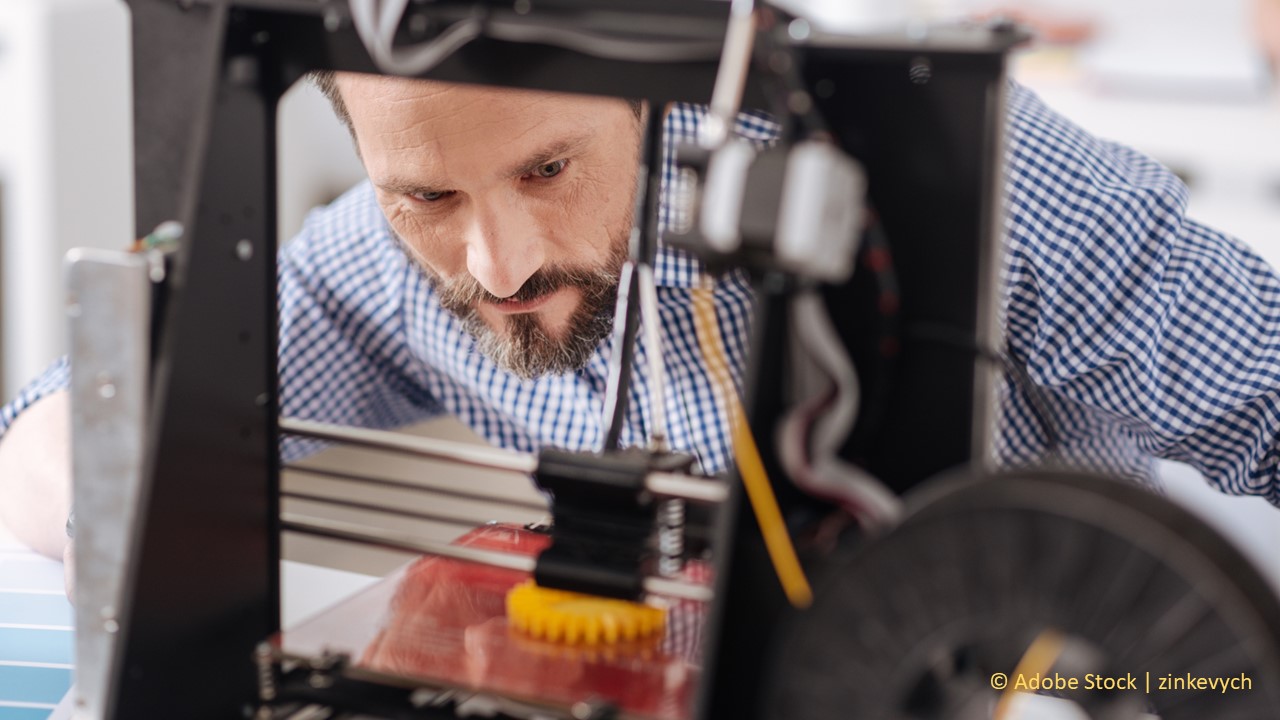Not for Commercial Use!
A Compliance Case Study

The People:
Kevin, a grad student in the School of World Studies
Ethan, a student who works in The Workshop, downstairs at the Cabell Library
Amari, another student who works in The Workshop
Trey, a student visiting The Workshop
The Setting: The Workshop, a makerspace in the Cabell Library at VCU
The Event: Ethan and Amari were working a shift in The Workshop when Amari asked Ethan if he’d noticed a grad student named Kevin coming in to use the 3D printers. “He’s a really nice guy. You know – he has brown hair and a beard, comes in almost every night…”
“Yeah, I know the one,” said Ethan. “Always signs in and heads straight to the printer in the corner and plugs-in his thumb drive and starts printing. In fact, look:” Ethan went to the PC and pulled up the sign-up page for the workstations. “Kevin’s already signed up for that 3D printer every night for the next two weeks.”
“Really?” asked Amari. “Isn’t there a limit to how many times someone uses a piece of equipment?”
“Well,” answered Ethan, “The guidelines say people who use The Workshop are supposed to be considerate of others. While he’s not being blatantly inconsiderate, if one person keeps 3D printing things in huge quantities, we might have to start charging people to use those printers. The printing filament is expensive.”
“Hey, look!” said Amari “There he is.” Sure enough, Kevin sauntered in with his backpack slung over his shoulder, taking out his student ID as he entered The Workspace.
“Howdy!” he said, as he flashed his ID and signed in.
Ethan and Amari said hi to Kevin and looked at each other. They looked back at Kevin and Amari asked, “Doing some 3D printing?”
“Yep!” said Kevin.
“What are you making tonight?” Amari asked.
“Oh, a little of this, a little of that.” He smiled and headed to the printer.
Later that night, another student stopped by the desk to ask a question and Ethan noticed he was holding a plastic key ring shaped like a mermaid.
“Cool key-ring!”
“I know, right? Dude over there sells them. It’s a combo key-ring-bottle-opener.”
The student walked away and Ethan looked around for Amari. “I think we have a problem,” he told her. “Apparently, Kevin is selling the things he’s making with our supplies…”
“…and Workshop materials are supposed to be for educational purposes. While he’s working his side-hustle he’s using resources other students might need,” Amari added.
After a few seconds, Ethan said, “I think we need to say something.”
The Takeaway:
Ethan and Amari were right; items made using The Workshop’s equipment are not supposed to be sold for profit. Unfortunately, at the time when Kevin was making 3D objects to sell, the user guidelines did not make that clear. When the VCU Helpline received a call about Kevin using library resources for profit, an investigation was opened. As a result, Kevin was told he would no longer be allowed to print items for sale using equipment in The Workshop, and the guidelines were updated to protect university resources, like the materials used in the printing of 3D objects:
The printers are intended for educational and experimentation purposes. They may not be used to produce an item or items for sale, or for any other commercial purpose or private financial gain. Nor may they be used for production-level printing (e.g. many copies of the same thing) without permission. VCU Libraries staff reserves the right to refuse any 3D print request.
Just like with any of the other resources provided by the university, the intention is for students, faculty and members of the VCU community to use equipment in The Workshop to learn, experiment and create. Using those resources for commercial purposes or financial gain undermines the spirit of that mission.
3D printers can now be used to print everything from copies of artifacts scanned by history professionals to prosthetic devices that help people needing replacements for body parts. And while we could all use more mermaid key-ring-bottle-openers in our lives, it’s probably best to reserve the 3D printers at the university for the intended purpose: so the people who need to learn and practice using them for that important work can do just that.
Please note: The names and details shared in this case study have been changed to protect the people involved in the actual case we investigated.